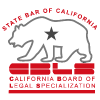Debts that result in personal injury or property damage can be non-dischargeable in a bankruptcy adversary proceeding
A creditor, or potential creditor, who has been involved in an auto accident with the debtor may try to file a bankruptcy adversary complaint under 11 U.S.C. §523(a)(6) which excepts from discharge debts arising from “willful and malicious injury”. These complaints have two major hurdles: 1) accidents are not willful or malicious; and 2) auto accidents involving drugs and alcohol are not dischargeable, therefore it can be assumed Congress intended that auto accidents that do not involve drugs and alcohol are dischargeable.
In order for a creditor to win, they must show that the debtor willfully and maliciously intended to cause the harm – Negligent or unintentional acts are not enough
Bankruptcy Code section 523(a)(6) excepts from discharge debts arising from “willful and malicious injury by the debtor.” 11 U.S.C. §523(a)(6). In the United State Supreme Court case Kawaauhau v. Geiger, 523 U.S. 57, 57 – 58 (1998), the Court examined a case involving a doctor who negligently handled a foot infection which resulted in the patient’s leg being amputated. In distinguishing between negligence and “willful and malicious” conduct, the Court reasoned:
The section’s word “willful” modifies the word “injury,” indicating that nondischargeability takes a deliberate or intentional injury, not merely, as the Kawaauhaus urge, a deliberate or intentional act that leads to injury. Had Congress meant to exempt debts resulting from unintentionally inflicted injuries, it might have described instead “willful acts that cause injury.” Or, Conress might have selected an additional work or words, i.e., “reckless” or “negligent,” to modify “injury.” Moreover, as the Eighth Circuit observed, the (a)(6) formulation triggers in the lawyer’s mind the category of “intentional torts,” as distinguished from negligent or reckless torts. Intentional torts generally require that the actor intend “the consequences of an act,” not simply “the act itself.” (emphasis in original).
Even ignoring the word “accident” from the Complaint as Plaintiff (perhaps this was used this to refer to the “situation” of a vehicle collision, rather than actually referring to intent), a vehicle collision that would satisfy the elements of Section 523(a)(6) would be something more akin to intentionally colliding with someone or their vehicle with the intent to cause them injury which has not been alleged. These facts would be more akin to something closer to vehicular manslaughter or vehicular battery. See California Penal Code §245.Furthermore, the Court in Kawaauhau v Geiger touched upon the dischargeability of debts arising from auto accidents:Furthermore, “we are hesitant to adopt an interpretation of a congressional enactment which renders superfluous another portion of that same law.” Mackey v. Lanier Collection Agency Service, Inc., 486 U.S. 825, 837 (1988). Reading § 523(a)(6) as the Kawaauhaus urge would obviate the need for § 523(a)(9), which specifically exempts debts “for death or personal injury caused by the debtor’s operation of a motor vehicle if such operation was unlawful because the debtor was intoxicated from using alcohol, a drug, or another substance.” 11 U.S.C. § 523(a)(9).
Kawaauhau v. Geiger at 62.The canon of statutory interpretation expressio unius est exclusion alterius states that statutes should be interpreted such that the expression of one thing implies the exclusion of others. See A. Scalia & B. Garner, Reading Law 107 (2012) (The “Negative-Implication Canon”); see also Jennings v. Rodriguez, 138 S. Ct. 830, 844 (2018). Here, Section 523(a)(9) specifically excepts from discharge debts “for death or personal injury cased by the debtor’s operation of a motor vehicle, vessel, or aircraft if such operation was unlawful because the debtor was intoxicated was intoxicated from using alcohol, a drug or other substance.” As this specific scenario of auto collisions involving intoxication is included in the statute, it can be implied that auto collisions not involving intoxication were intentionally excluded.
Our Client’s Outcome
In a recent bankruptcy adversary proceeding handled by Heston & Heston that involved an auto accident, we filed a motion to dismiss the adversary complaint based in part on the arguments outlined above. Although it would have been nice to get the Court’s ruling on the matter, we were contacted by the Plaintiffs attorney and an agreement was reached to dismiss the complaint entirely, which was a much better outcome for out client. The debt was discharged and the case was then closed.
Related posts:
- What Must a Creditor Prove In An Adversary Complaint Based on Fraud?
What types of fraud can be non-dischargeable? One of the most common adversary proceedings brought... - Bankruptcy Discrimination: Student Loans & Employment
Employment If you file bankruptcy, you have some limited protections from having your bankruptcy filing... - How to Keep a Vehicle in Bankruptcy through §722 Redemption
What debts, if any, can be reorganized or modified in a Chapter 7? In the...









